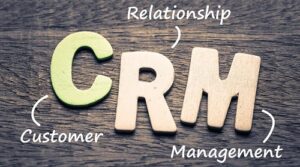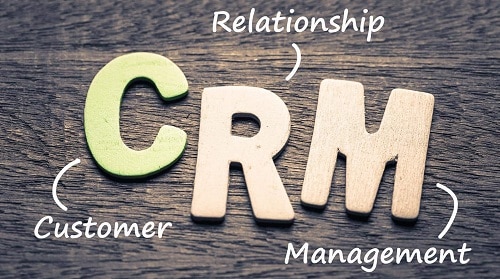Customer Relationship Management (CRM) is an essential tool for businesses looking to improve their sales performance. In today’s competitive market, companies need to focus on building strong relationships with their customers, and CRM software can help with this. In this article, we will explore how CRM can boost sales performance and help companies achieve their business goals.
What is CRM?
CRM is a software system that helps businesses manage their interactions with customers, clients, and prospects. It allows businesses to store customer information, track sales activities, and manage customer relationships in a more efficient and effective way. CRM software can be used to manage sales, marketing, customer service, and other business processes.
How Does CRM Boost Sales Performance?
CRM can boost sales performance in several ways. Here are some of the key benefits of using CRM software:
1. Improves Customer Relationships
CRM software allows businesses to track and manage customer interactions, which can help build stronger relationships with customers. By storing customer information in one central location, businesses can quickly access customer data and tailor their sales and marketing efforts to meet the customer’s specific needs. This can lead to increased customer loyalty and retention, which can ultimately boost sales.
2. Streamlines Sales Processes
CRM software can automate many sales processes, including lead management, contact management, and sales forecasting. This can help sales teams be more productive and efficient, allowing them to focus on selling and closing deals. By reducing administrative tasks and automating routine processes, sales teams can spend more time engaging with customers and driving revenue.
3. Provides Insights into Sales Performance
CRM software can provide valuable insights into sales performance, such as sales pipeline reports, revenue forecasts, and win/loss analysis. This information can help businesses identify areas for improvement and make data-driven decisions to optimize their sales processes. By analyzing sales data, businesses can identify trends, track performance, and make adjustments to their sales strategies to achieve better results.
4. Improves Collaboration and Communication
CRM software can improve collaboration and communication between sales teams and other departments, such as marketing and customer service. By sharing customer data and sales information, teams can work together more effectively to achieve common business goals. This can lead to more effective cross-selling and upselling, which can increase revenue and improve customer satisfaction.
Choosing the Right CRM Software
There are many different CRM software options available, each with their own features and benefits. When choosing a CRM software, businesses should consider their specific needs and goals, as well as the size of their business and budget.
Here are some factors to consider when choosing a CRM software:
1. Features and Functionality
Different CRM software options offer different features and functionality. Businesses should consider what features are most important to them, such as lead management, contact management, sales forecasting, and reporting. They should also consider how easy the software is to use and whether it integrates with other business tools.
2. Scalability
Businesses should choose a CRM software that can scale with their business as it grows. This means choosing a software that can handle more users, more data, and more complex business processes as the business expands.
3. Cost
CRM software can range in price from free to several thousand dollars per month. Businesses should consider their budget when choosing a software and look for a solution that offers the right balance of features and affordability.
4. Support and Training
Finally, businesses should choose a CRM software that offers reliable support and training. This can help ensure that the software is implemented correctly and that users are able to use it effectively.
Conclusion
CRM software is a powerful tool for boosting sales performance and improving customer relationships. By providing valuable insights into sales performance, streamlining sales processes, and improving collaboration and communication, CRM software can help businesses achieve their sales and revenue goals. However, it’s important to choose the right CRM software for your business needs and goals.
In addition to the factors mentioned above, businesses should also consider the level of customization and flexibility offered by the CRM software. Some CRM software options may be more rigid and offer limited customization options, while others may be highly customizable to fit the unique needs of your business.
Ultimately, the success of your CRM implementation will depend on how well you understand your business needs, how effectively you can integrate the software into your existing processes, and how committed you are to ongoing training and support.
By investing in the right CRM software and taking the time to implement it effectively, businesses can improve their sales performance, build stronger customer relationships, and achieve their business goals.
FAQ
Q: What is CRM?
A: CRM stands for Customer Relationship Management. It is a software system that helps businesses manage their interactions with customers, clients, and prospects.
Q: How does CRM boost sales performance?
A: CRM can boost sales performance by improving customer relationships, streamlining sales processes, providing insights into sales performance, and improving collaboration and communication between teams.
Q: How do I choose the right CRM software?
A: When choosing a CRM software, businesses should consider factors such as features and functionality, scalability, cost, and support and training.
Q: What are some of the benefits of using CRM software?
A: Some of the benefits of using CRM software include improved customer relationships, increased sales productivity, better sales forecasting, and improved collaboration and communication between teams.
Q: What are some of the key features of CRM software?
A: Some of the key features of CRM software include contact management, lead management, sales forecasting, reporting and analytics, and marketing automation.
Q: Can CRM software be customized to fit my business needs?
A: Yes, many CRM software options offer customization and flexibility to fit the unique needs of your business. It’s important to choose a software that offers the right level of customization for your business needs.
Q: Do I need to have a large business to benefit from CRM software?
A: No, businesses of all sizes can benefit from CRM software. Whether you’re a small business looking to improve your sales processes or a large enterprise looking to optimize your customer relationships, CRM software can help.
Q: How long does it take to implement CRM software?
A: The length of time it takes to implement CRM software can vary depending on the complexity of your business processes and the level of customization required. However, with proper planning and support, businesses can typically implement CRM software within a few weeks to a few months.
Q: How much does CRM software cost?
A: The cost of CRM software can vary depending on the features and functionality offered, as well as the size of your business. Some CRM software options are free, while others can cost several thousand dollars per month. It’s important to consider your budget and business needs when choosing a CRM software.
In conclusion, CRM software can be a powerful tool for businesses looking to improve their sales performance and build stronger customer relationships. By understanding your business needs and choosing the right CRM software, you can take advantage of the many benefits that CRM has to offer. With proper implementation, training, and support, you can maximize the ROI of your CRM investment and achieve your business goals.

